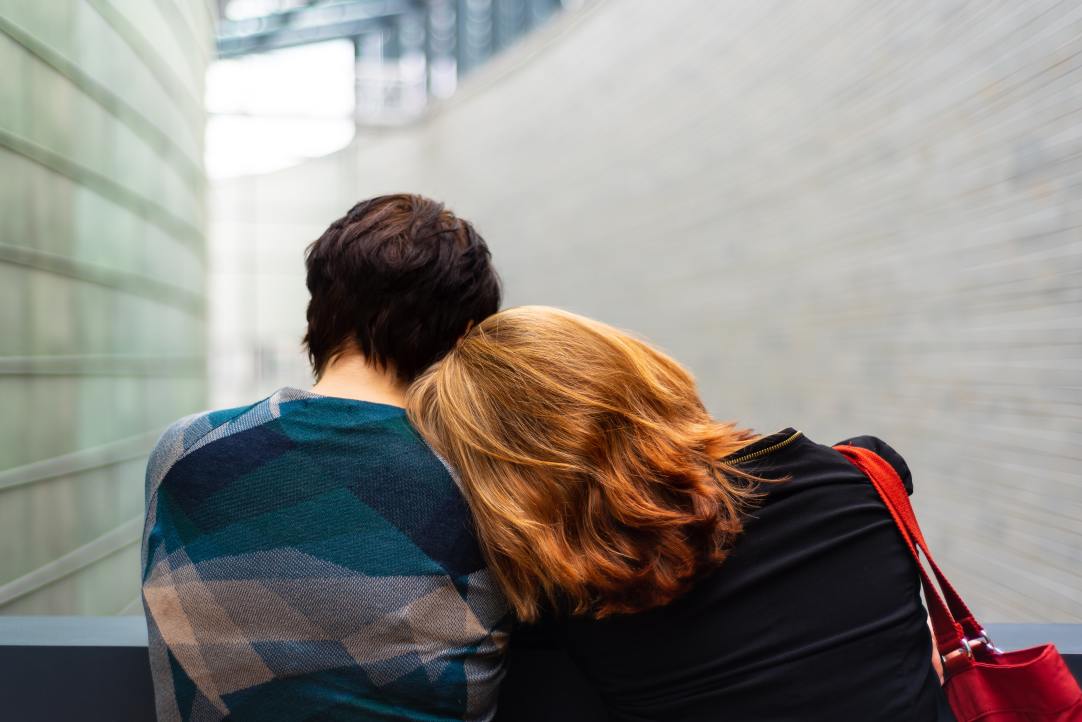- A
- A
- A
- ABC
- ABC
- ABC
- А
- А
- А
- А
- А
- HSE University
- Faculties
- Faculty of Social Sciences
- School of Psychology
- News
- Healing from a Pandemic: Mental Health
-
Education
-
The School
- About
-
Laboratories
-
- The Scientific-Educational Laboratory of Ability Psychology
- Center for Sociocultural Research
- International Laboratory of Positive Psychology of Personality and Motivation
- Laboratory for Cognitive Research
- Cognitive Psychophysiology Laboratory
- Vision Modelling Laboratory
- Laboratory for the Neurobiological Foundations of Cognitive Development
-
- Partners
- Staff Members
- International Cooperation
Phone: +7 (495) 772-95-90 *15366
Email: dekpsy@hse.ru
Address: 101000, Moscow, Armyanskiy per. 4, c2
Address for correspondence: 20 Myasnitskaya Ulitsa Moscow 101000 (School of Psychology)
In press
Popyvanova A., Pomelova E., Bredikhin D. et al.
IEEE, 2024.
Zaidi S. G., Orazmukhametova L., Zahra S. K. et al.
TPM - Testing, Psychometrics, Methodology in Applied Psychology. 2025. Vol. 32. No. S8. P. 2025-2035.
Tunkevichus O., Bagrationi K.
In bk.: The Proceedings of the 20th European Conference on Innovation and Entrepreneurship. Vol. 20. Iss. 1. Academic Conferences International Limited, 2025. P. 759-766.
Ivanova M., Germanova K., Petelin D. et al.
Biorxiv. 005140. Cold Spring Harbor Laboratory, 2024
The School promotes cutting-edge research, multidisciplinary studies, education in English. We are increasing the number of courses in English all the time and have started two English-speaking Master’s Programs. Our researchers have access to Eye trackers, TMS, multi-channel EEG, MEG and fMRI techniques.
The School also aims to train psychologists, who can apply their knowledge in the fields of economics, banking, human resources management, organizational development, ecopsychology and team-building.

Healing from a Pandemic: Mental Health

On April 30, Tomas Jurcik, Assistant Professor at the HSE School of Psychology, held the discussion ‘Healing from a Pandemic: Individual Perspectives’, as part of Mental Health Spring, organized by the HSE Psychological Counselling Centre.
This discussion focused on how the COVID-19 pandemic affected people around the world, including members of the HSE University community. The participants also discussed strategies on maintaining mental health during this challenging time. As the event was held in English, HSE international students were able to take part. The HSE News Service asked Professor Jurcik some questions about the pandemic and related mental health issues.
Tomas Jurcik, Assistant Professor at the HSE School of Psychology
How did the group discussion go?
The discussion went well—we had people joining us from Russia, Europe, East Asia, and Latin America. I think it was a great opportunity to develop greater cohesion among our HSE community despite the distances between us. Many people opened up and shared their unique and common experiences with each other. I was impressed by the resourcefulness of the group and their ability to find solutions, and listen to each other. Perhaps we will try to hold such events in the future.
We haven't had such an experience of wide lockdowns as we see now. Could you possibly provide some similar examples from global history?
What we are experiencing is unprecedented. According to some reports, nearly 4 billion people around the World are in some form of lockdown. Having said that, pandemics are not uncommon events. The Spanish flu of 1919 is of considerable historical significance because of its impact. Of course, more recent examples include the H1N1 pandemic of 2009 and the SARS outbreak of 2003.
None of these earlier pandemics led to such an extensive lockdown or mass quarantine, which makes this event unique, along with accessibility to social media and the internet: we are much more interconnected than ever before and have access to information (or misinformation!) at our fingertips.
One of the concerns that public health officials cite is that we still do not know much about COVID-19, but research is ongoing rapidly, and we are learning more and more about how widespread it is. For example, it appears that the virus is even more widespread than we first thought, which also means that it may also not be as dangerous at a population level as we first thought.
This is not to undermine the significance of the outbreak, which has led to many emergency and intensive care units being overwhelmed in various locations. We need to exercise caution as we monitor the ongoing effects of this virus, but I also think we need to keep this virus in perspective. It is not the first, nor is it the last pandemic, and the global community will recover from it as we did with the previous ones.
According to the head of the WHO in Russia, Melita Vuinovich, the necessary response was undertaken in Russia, including self-isolation. What can every person do to promote mental health in these circumstances?
Let’s quickly discuss terminology. I think it’s important to set the stage when it comes to mental health issues as we are dealing with a mass quarantine which has the potential to have far reaching effects.
Self-isolation (at least in English) usually refers to isolating those that are ill (not those that are healthy), and quarantine refers to those at elevated risk of developing the disease (e.g., who were in direct contact with someone ill). Both strategies have been used effectively in the past in limiting the spread of a disease.
The mass quarantine interventions that we are seeing around the world are more novel, as they target the population at large regardless of risk level. It represents an approach designed to contain the epidemic (“to flatten the curve”) and spread out the number of cases over time, although we have to wait to see how effective this strategy will be in the long-run.
Some population health scientists at prestigious institutions have questioned the quarantining of massive numbers of healthy people as it is not an evidence-based intervention. Interestingly, some countries such as Sweden have opted for a different approach which involves milder social distancing recommendations as opposed to extensive lockdowns.
Epidemiologists will probably compare the effectiveness of these different strategies in the future, not only in terms of COVID, but also other aspects of population health.
So let’s turn to mental health issues. My concern is that many people are suffering significant financial hardship as a result of massive global unemployment caused by the lockdowns, not to mention that isolation has negative effects on both physical and mental health.
Due to the lack of exercise and movement people may be prone to health problems (e.g., cardiovascular problems), and the prolonged social consequences of the quarantines may fuel psychological problems such as anxiety about the future, depression, insomnia, loneliness, and the abuse of substances like alcohol. There may also be an escalation of interpersonal conflict as people with preexisting problems live together in close quarters for extended periods of time, and thus the potential for trauma.
The social, physical and mental health effects cannot be separated and are clearly interlinked.
On the other hand, there are also good reasons to be hopeful. Some people were able to readjust fairly well to a new routine and have learned new coping skills. Others report that the pandemic has gotten them to focus more on spending quality online time with friends, colleagues and family members.
Some closely review their values and what they took for granted in the past. Some of this refocusing, self-reflection and mindfulness may lead to growth and resilience. As psychologists, it will be important for us to focus on fostering hope for the future and mobilizing people’s resources.
What can people do to help themselves in self isolation?
A plethora of studies have shown that social support is protective against numerous mental health problems, especially depression. Keeping connected is very important. We are fortunate that we live in the 21st century and have access to our friends, family and colleagues online using the many teleconferencing platforms out there.
Consider even getting in touch with people who you have lost contact with over the years and support each other.
On a side note, I agree changing the term of ‘social distancing’ to ‘physical distancing’ as some psychologists suggest. The latter implies that we can still keep in touch with each other, which is critical to mental health.
Have realistic expectations about what you can accomplish under these conditions. It takes time to develop new routines and it’s important to accept one’s limitations. Developing or keeping a (realistic!) routine can help you stay focused.
Do some kind of moderate exercise. It can foster mental and physical well-being. You can even do jumping jacks in your apartment or even in your yard. Get some sunlight!
Limit use of alcohol and other substances, including nicotine. In fact, this may be a good time to work on quitting smoking given that the virus targets the lungs.
All in all, keeping a realistic perspective on this situation is also important: we will overcome this pandemic as a global community, we have done it before. This situation, as uncomfortable as it is, is temporary.
As HSE students you are also fortunate to have access to psychological counselling services at HSE University. Do not hesitate to contact them to talk through the challenges that you are facing. Don’t let stigma of getting help isolate you. We are all in a challenging situation together and everybody deserves to be heard.
How does one handle distant learning and teaching with all this pressure, especially when distance learning is a new thing for the majority of students and instructors?
Many people in academia are perfectionist and highly self-critical. Be kind to yourself for a change. Going long-distance is a big adjustment for many students and professors alike.
First of all, reduce unrealistic expectations and pressure to allow yourself time to adjust.
Keep in mind that distance learning also means that travel time is cut back (think of the hours you sat on the Moscow metro!). Much of the time lost can be rechanneled in other constructive ways.
If you are having difficulty staying focused, try to reward yourself with something pleasant after you’ve accomplished a task. For example, maybe play those computer games or that movie after you completed part of your assignment, rather than before, if you find yourself procrastinating.
As a parent or caregiver it can be especially challenging working from home with new childcare demands. Setting some boundaries and self-care is important, including sharing responsibilities with another parent or caregiver if possible.
Keeping up with some reasonable daily routines can be very helpful as well as setting some goals to keep you inspired and motivated.
Maybe you’re wanted to find time to learn a few basic tunes on the guitar that’s been sitting in your closet for years, but never did. Perhaps this is a better opportunity than ever to do that. Having some enjoyable distraction in moderation can help you focus on work later on. It can be challenging to develop new achievable goals and routines, but once you do, it helps you keep going.
How can we help ourselves and our families in self isolation? What means could we use?
Find the time to communicate with each other constructively. It is very easy to become frustrated and start blaming those that are closest to you. Just remember that we’re all in this together and try to work as a team.
Of course, I’m aware that this is easier said than done when there are long term communication problems and family tension, but try to set aside some family meeting times were you can come together and calmly talk about issues that are problematic, and also take this time to celebrate each other’s successes as well.
Be a good listener: ask what you can do for your loved ones. Serving can be powerful, and take your focus away from your own suffering while allowing you to connect with others.
Having said that, respect your personal needs; it is difficult if not impossible to properly help others without taking care of yourself first. This also means setting limits and finding sufficient private time to recharge yourself when necessary.
How can we deal with the challenges that we have now due to the availability of free internet lectures, courses, etc and the fear of missing out related to that? A lot of people boast about their achievements on social media. How can people deal with this kind pressure and find a healthy balance?
Stay connected but do not get absorbed in social media ‘competitions’. FB / VK photos are also known to be biased: people try to show themselves at their best (how many times do you see people posting pictures of themselves in despair instead of showing themselves off?).
Instead of spending too much time on FB/VK checking out photos and achievements (maybe set a reasonable limit each day), spend more social time chatting to a friend or group.
There is research showing that social media use can be associated with depression, so it can be a double edged sword: helpful in connecting us, but also fueling unproductive social comparisons. Remember that you are a unique individual with a set of strengths and weaknesses. Social media often leads to portrayals of people as one dimensional.
Not knowing how long we are going to follow the strict rules of self-isolation is scary for some. Any recommendations on how to diminish this fear?
Being mindful of the present moment can be a powerful tool. Tolerating some level of uncertainty will be important. This situation with the quarantine is temporary even if it lasts a long time. In any case, you can only live in this moment, whether you like it or not so dwelling on the time frame won’t necessarily be constructive, even if it is understandable.
Focus on what you can control. Here’s the caveat: I mean this constructively, not obsessively! For example, don’t try to excessively wash your groceries. Limit your exposure to media if constant updates are upsetting and disorienting. As I said above, stay connected, do something pleasant to take care of yourself, as small as it may be. Reach out to another in need.
Find meaning in the small things, and do something that gives you a sense of purpose (e.g., journal, paint, play music) whatever that means for you as a person.
If it means being angry, be angry, but use that anger constructively rather than destructively. Viktor Frankl once wrote: ‘Everything can be taken from a man [or woman] but one thing: the last of the human freedoms—to choose one’s attitude in any given set of circumstances, to choose one’s own way.’ Hopefully, we will no longer take our basic freedoms for granted, and appreciate more of what we have following the quarantine.
Could you share some tips on how to behave now and in the nearest future when self-isolation is over?
I feel uncomfortable providing people with a simple “magic pill” solution, because everyone is different. However, along with some colleagues in the field (I have been discussing the pandemic with psychologists and psychiatrists in four different countries) we came up with some basic tips on getting through the quarantine, which overlap with what I already said:
- Keep a realistic perspective: Focus on evidence rather than myths
- Foster hope: Remember that this is temporary
- Keep a daily routine or develop new routines (e.g., things change with kids in the home)
- During the quarantine, lower performance expectations and unrealistic work demands
- Discover alternative projects that can be completed during the quarantine (e.g., hobbies)
- Social Support: Reconnect with friends and colleagues long-distance
- Self-care: Take care of yourself and others at home
- Moderate exercise (e.g., increase heart rate through jumping jacks)
- Quit smoking (if applicable, given the nature of COVID)
- Consider Telecounselling! (e.g., HSE offers free services to students)
Once the quarantine is over, take an opportunity to live more mindfully, appreciating every moment with family and friends, being in nature, or in the art gallery or cinema, or whatever it is that you used to enjoy (by the way, I also recommend living more mindfully now!).
Let yourself try something new but also something old.
You will see many things from a fresh perspective. Even if the quarantine lasts longer, remember that we are in this together. Stay connected. There are resources that you can reach out to if you want someone to listen.
*The opinions represented here are those of the author, and are not intended to supplant advice from your healthcare professional.
- About
- About
- Key Figures & Facts
- Sustainability at HSE University
- Faculties & Departments
- International Partnerships
- Faculty & Staff
- HSE Buildings
- HSE University for Persons with Disabilities
- Public Enquiries
- Studies
- Admissions
- Programme Catalogue
- Undergraduate
- Graduate
- Exchange Programmes
- Summer Schools
- Semester in Moscow
- Business Internship
- © HSE University 1993–2025 Contacts Copyright Privacy Policy Site Map
- Edit


